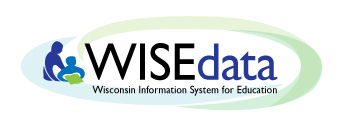From Broken Budgets to Real-Time Reconciliation
Case Study: WISEdata
How Wisconsin Department of Public Instruction Integrated Ed-Fi’s Interoperability Framework to Maximize Efficiencies for Local Education Agencies’ Financial Systems

Under the Individuals with Disabilities Education Act (IDEA), every Local Education Agency (LEA) across the country must meet a fiscal compliance measure called Maintenance of Effort (MOE). Real-time data has transformed the speed and accuracy of collecting this data for hundreds of LEAs, leading to a more efficient collection process.
Overview
IDEA MOE compares an LEA’s local spending on special education instruction and related services between fiscal years. The results of LEAs’ IDEA MOE compliance are reported annually to the Department of Education (DE), at which point one of two outcomes are determined:

-
If the LEA spends less in any given year, the difference in spending must be made up for by the LEA’s local funds. If the LEA spends more in any given year, it effectively creates a new, higher threshold the LEA must now meet moving forward. Thus, districts need to be very aware of exactly how this budget is being allocated and spent.
-
In Wisconsin, the Department of Public Instruction (DPI) serves as a “middle” layer between LEAs and the DE, providing districts with financial services and assistance in accurately collecting data that is compliant with the DE, which the DPI does through its WISE portal (Wisconsin Information System for Education).
Historically, the IDEA MOE has remained a cumbersome and complicated compliance measure for both districts (LEAs) and State Education Agencies (SEAs) with high stakes.
The Challenge
Prior to the 2021-2022 fiscal year, the Wisconsin Department of Public Instruction (DPI) depended on LEAs to submit their special education financial data via two static financial reports: one showing the LEAs’ special education planned budget (sent annually to DPI in December) and one showing the LEAs’ actuals (sent after the fiscal year had closed).
Both reports were raw data files in Excel and imported into DPI’s reporting system, leading to several challenges for Wisconsin DPI with widespread implications.

Missing Data
Ideally, data submitted by the LEAs would accurately reflect the financial details (ledgers, chart of accounts, etc.) for a given period. However, LEAs were collecting data at a high level because the Wisconsin DPI financial system at the time allowed for a wide spectrum of data to be imported. This meant each of the LEAs’ two special education financial reports consistently missed crucial details impacting federal grant compliance and state funding.

Multiple Siloed Systems
Financial system vendors in Wisconsin knew they had to provide LEAs with a “data dump” spreadsheet (i.e., a CSV file) that could then be uploaded to the DPI system for review. However, the issue with this approach is that because Wisconsin DPI works with multiple vendors who use a wide variety of systems, there were often inconsistencies with what data was collected, how it was collected, and ultimately — how it was provided to the DPI.

Manual Reconciliation
Moreover, there was no way to integrate LEAs’ ledgers with what they reported automatically. Meaning, if there were updates, errors, or inconsistencies in the data, Wisconsin DPI had to not only uncover them by manually vetting the data, but they also had to assist LEAs in updating their books to match the CSV file — line item by line item. This equated to endless hours of the DPI staff sitting on the phone with over 400 Wisconsin LEAs every year when it was time to submit reporting.
Additionally, because LEAs were pulling financial data just once per year to comply with the IDEA MOE reporting requirement, when Wisconsin DPI did discover errors or inconsistencies, they reflected a year’s worth of issues — months after the fiscal year had been closed and audited. Still, the DPI would work directly with LEAs to correct the data, which in reality meant the LEA fixed data for the DPI — but did not fix the data in their ledger.
This reactive, manual reconciliation generated hundreds of hours of DPI staff time. It increased stress for LEA staff to retroactively pinpoint what went wrong the prior year and determine how to maintain compliance with the DE. In sum, there was no way to accurately gauge an LEA’s financial details or make real-time adjustments when data collection or reporting errors occurred.
The Solution
Wisconsin DPI knew their current framework for supporting LEAs with this specific reporting requirement was unsustainable. Missing data siloed systems, and manual reconciliation was a broken and costly infrastructure, both from a financial perspective and staffing and hours perspective. The DPI needed a way for financial systems to collect and aggregate data in a standardized and efficient manner and for those disparate systems to integrate with each other and the DPI’s own system.

In 2016 the Wisconsin Department of Public Instruction (DPI) implemented the Wisconsin Information Systems for Education Data System (WISEdata). WISEdata is a multi-vendor, open data collection system that services school districts in the state powered by Ed-Fi technology. The Ed-Fi Alliance is a non-profit initiative that creates and maintains the Ed-Fi data standard and technology suite to enable education agencies to have a real-time, comprehensive view of their data so they can solve entrenched challenges at scale. WISEdata system has become the state agency’s primary tool for collecting data from Wisconsin’s LEAs, charter schools, and private choice schools. Wisconsin DPI relies on the WISEdata system to meet state and federal reporting requirements and provide several value-added services to Wisconsin’s education system.
During a pilot program, Ed-Fi’s data standard was implemented into the data infrastructure of a select group of vendors, allowing financial information to flow directly from vendors’ systems into DPI.
This WISEdata Ed-Fi Integration project replaces individual legacy collection systems with a cohesive interoperability collection framework, helping financial system vendors seamlessly gather and aggregate standardized data; LEAs stay compliant with federal reporting requirements; and Wisconsin DPI saves thousands of hours of manual data reconciliation.
“The old systems we were using were crumbling down around us — they were being held together with tape and Band-Aids. And because we work with multiple financial software vendors and have not historically had access to LEA accounting software, it was a very, very heavy lift for Wisconsin DPI staff to help districts get their data to us, much less assist in cleaning up their books. I’m not exaggerating when I say that the WISEdata Finance project is going to save the DPI staff thousands of hours a year.”
Rachel Zellmer
Federal Fiscal Monitoring Consultant Special Education / WISEgrants
WI Dept of Public Instruction
The Results
Beginning with the 2021 to 2022 fiscal year, LEAs now regularly push their detailed financial information to Wisconsin DPI through the latter’s financial services system: WISEdata Finance. This is merely one system under the larger WISE infrastructure, which is comprised of multiple tools (including WISEdata Finance) that support data collection to meet required district, state, and federal reporting mandates.
Thanks to the DPI’s decision to integrate Ed-Fi into WISEdata, Wisconsin DPI and LEAs (and their financial system vendors) are seeing a tremendous improvement in process, efficiency, and IDEA MOE compliance.

Static to Dynamic Budget Management
Rather than looking at a static view of a single CSV file to determine an LEA’s budget status, Wisconsin DPI will now be able to use real-time budget information in its federal grants management system (WISEgrants) to continuously inform LEAs of their budget and compliance status. If there are not enough funds budgeted, the LEA will not come into compliance until the budget is fixed in their financial systems.
If budgeted amounts suddenly dip under compliance standards, the LEA will be immediately informed through an automated messaging system within WISEdata Finance.

Real-Time Reconciliation
Instead of attempting to reconcile local and federal accounts in just two attempts at the start and close of each fiscal year, WISEdata Finance enables real-time reconciliation. Meaning, LEA staff will correct ledger errors as they occur, rather than spending hundreds of hours with Wisconsin DPI to untangle months of backlogged data errors.

Reduced Staff Hours and Improved Cross-Team Communication
Because WISEdata Finance essentially takes the guess (and manual) work out of ensuring IDEA MOE compliance, this frees up an enormous amount of time for all parties, but especially Wisconsin DPI.
Instead of volleying phone calls and emails back and forth with LEAs, the DPI staff can focus more on customer support and overseeing accounts, e.g., ensuring every LEA has clear insight into their budget and compliance status, compiling reports to help LEAs maximize their revenue for special education, connecting LEA budget information with their federal spending to provide guidance and recommendations on how to best manage funds, and more.
In short, with real-time, detailed financial information through WISEdata Finance, LEAs now have the tools available to stay in compliance, maximize revenue, and have clean audits.
The Conclusion
The possibilities for education agencies to collaborate with Ed-Fi are seemingly endless. Wisconsin DPI’s journey with implementing Ed-Fi’s data standard is just one example of how interoperability can vastly improve data quality and operational efficiency — there are hundreds, if not thousands, of other applications that are lying dormant within in our currently fragmented education data systems. These types of strategic solutions, big and small, exist everywhere — we just have to work together to solve them.
Ready to Get Started?
Create a free account to access Ed-Fi tools and resources. Start your journey to connected data today.
Create An Ed-fi AccountNot sure where to begin? Contact Us!

